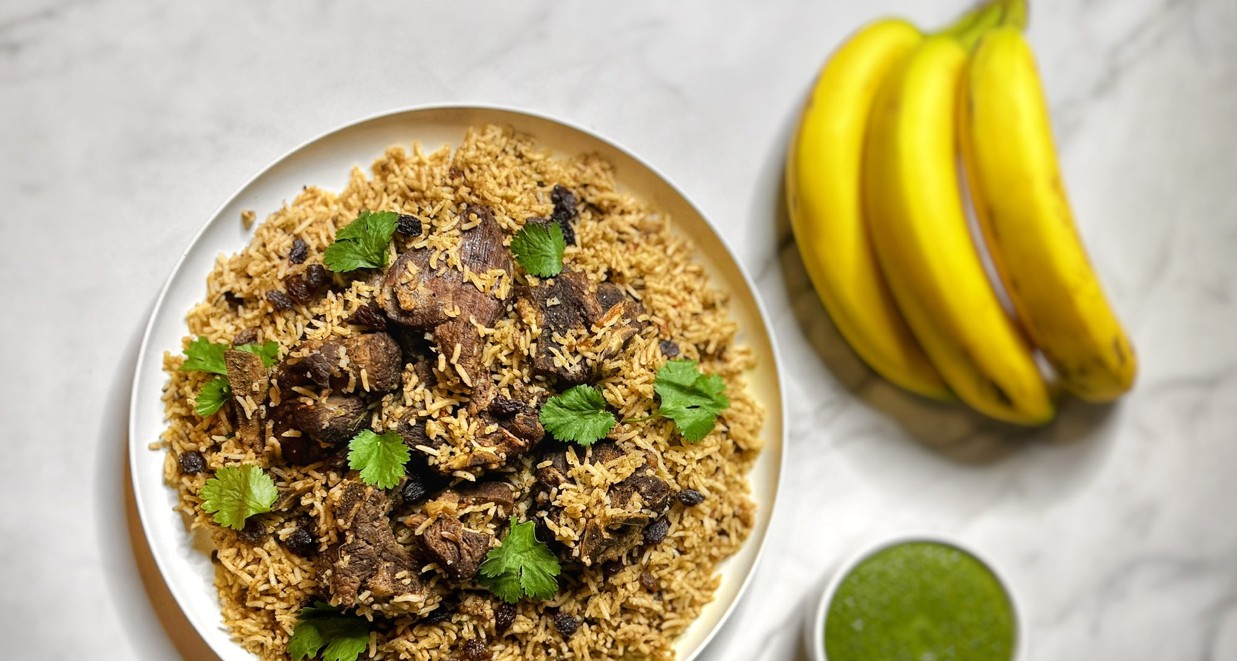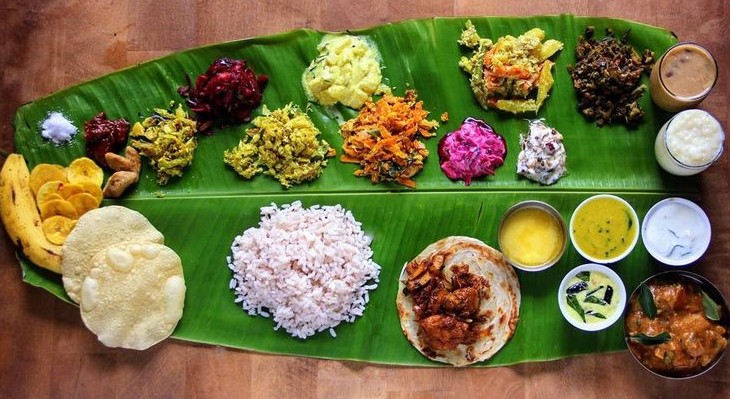The unbreakable bond between Somalis and bananas at mealtime

Unlike in many other cultures where fruit is reserved for dessert, Somalis eat bananas alongside their main course, allowing the soft sweetness to contrast against the hearty, savoury dishes.
Walk into any Somali household or restaurant, and one thing is guaranteed: a bright yellow banana will be sitting proudly on the plate, no matter what is being served.
From aromatic rice dishes like bariis iskukaris, Somali spiced rice often adorned with raisins, peas, and crispy fried potatoes, onions and peppers, and served alongside tender roasted lamb or beef, to hearty, flavourful stews, the humble banana is more than just an accompaniment; it is a culinary staple deeply embedded in Somali food culture.
More To Read
- How to make sweet and savoury plantains at home
- Nairobi hosts third Somali Cultural Festival as crowds flock to Two Rivers Mall
- Bariis: Beginner’s guide to making the perfect Somali rice
- How to make Kac Kac, the crispy Somali tea biscuits
- Basbousa: The classic cake bringing families together
- Robots, smart tables and Somali flavours: Eastleigh’s AK’s Restaurant is the future of dining
So why is the banana so important? The answer lies in history, flavour balance and tradition.
Somali cuisine is a rich mix of flavours shaped by traders from the Indian Ocean region. Over time, Arab, Persian, Indian, and even Italian influences have blended into Somali cooking, creating unique and delicious dishes.
Richly spiced food
This history explains why Somali food is richly spiced, often featuring cardamom, cumin, cloves, and cinnamon.
Over the centuries, these spices became essential to dishes, creating the warm, fragrant meals Somalis love today. But with bold flavours comes the need for balance, and that is where the banana comes in.
“Somali dishes can be quite spicy and aromatic, and the banana helps to neutralise the heat while adding a natural sweetness,” says Fatma Mohammed, a Swahili restaurant owner in Nairobi’s South C who serves Somali dishes alongside coastal specialties.
“Even when customers don’t ask for it, we automatically serve a banana with their meals because it is tradition.”
Beyond balancing spices, the banana also plays a crucial textural role.
 Somali food served on a banana leaf. (Photo: Pinterest)
Somali food served on a banana leaf. (Photo: Pinterest)
Soft sweetness
Unlike in many other cultures where fruit is reserved for dessert, Somalis eat bananas alongside their main course, allowing the soft sweetness to contrast against the hearty, savoury dishes.
This unique pairing is especially beloved with bariis, the Somali-style rice cooked in a spiced broth and often topped with tender goat or chicken.
“Some first-time customers find it odd to mix banana with savoury food,” Fatma says with a laugh.
“But once they try it, they understand why it works. It’s just like how Indians use yoghurt to cool down a spicy curry; it’s all about balance.”
This tradition of serving bananas is not just about taste; it is also about hospitality.
Somali culture places great importance on generosity, and an abundant plate, including a banana, is a sign of a well-prepared meal.
“If you ever go to any Somali-owned hotel, trust that the food there will be in plenty, a little bit flavourful and have a banana. Skipping it would feel incomplete, almost as if something essential were missing from the dining experience,” Fatma says.
“So next time you enjoy Somali cuisine, embrace the banana on your plate. It’s not just a fruit, it’s a tradition, a history and the perfect finishing touch to an already flavourful meal.”
With every bite, the banana brings harmony to the meal, balancing the bold spices and rich flavours that define Somali cuisine.
Whether enjoyed at home or in a bustling restaurant, it remains a cherished symbol of hospitality and tradition, one that continues to bring people together, one meal at a time.
Top Stories Today













































